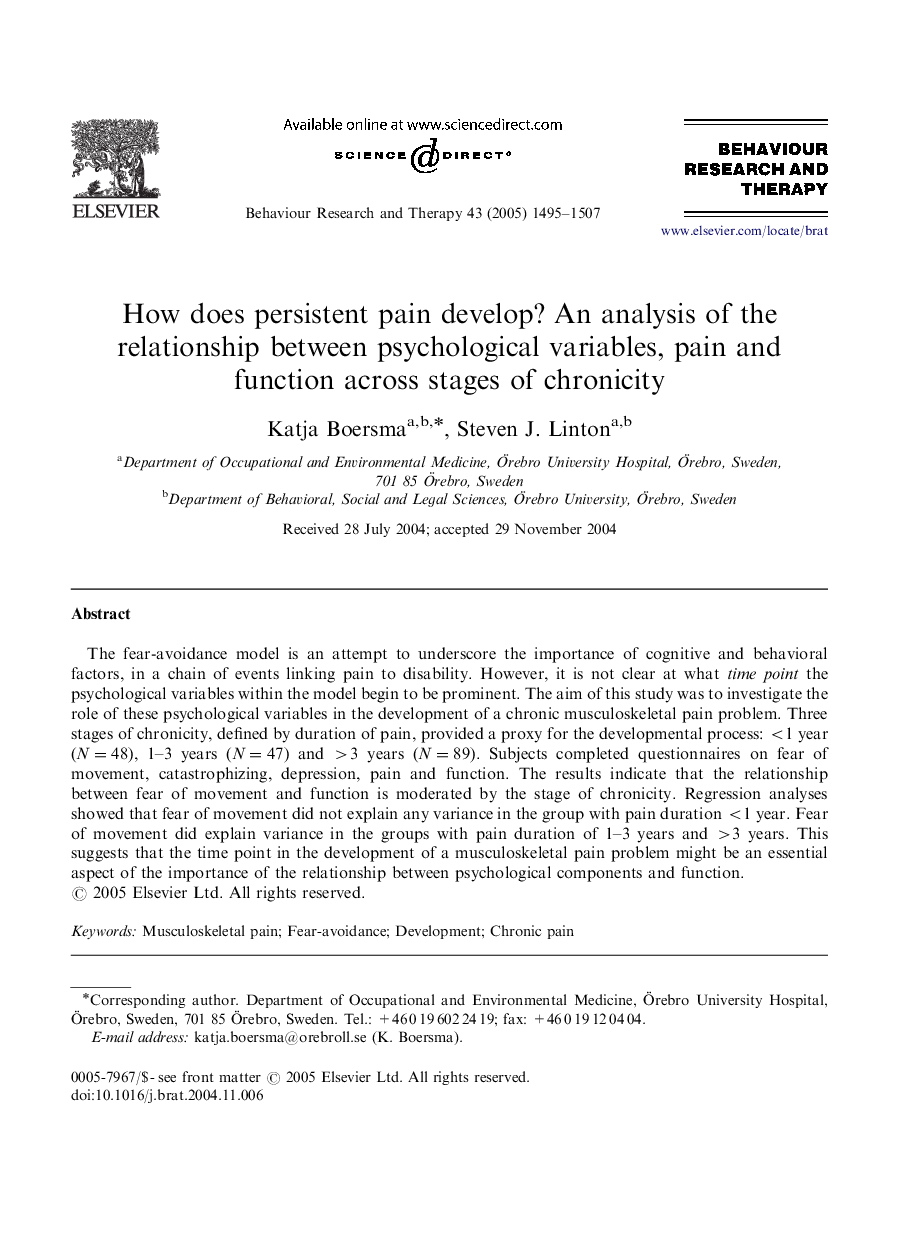| Article ID | Journal | Published Year | Pages | File Type |
|---|---|---|---|---|
| 10444916 | Behaviour Research and Therapy | 2005 | 13 Pages |
Abstract
The fear-avoidance model is an attempt to underscore the importance of cognitive and behavioral factors, in a chain of events linking pain to disability. However, it is not clear at what time point the psychological variables within the model begin to be prominent. The aim of this study was to investigate the role of these psychological variables in the development of a chronic musculoskeletal pain problem. Three stages of chronicity, defined by duration of pain, provided a proxy for the developmental process: <1 year (N=48), 1-3 years (N=47) and >3 years (N=89). Subjects completed questionnaires on fear of movement, catastrophizing, depression, pain and function. The results indicate that the relationship between fear of movement and function is moderated by the stage of chronicity. Regression analyses showed that fear of movement did not explain any variance in the group with pain duration <1 year. Fear of movement did explain variance in the groups with pain duration of 1-3 years and >3 years. This suggests that the time point in the development of a musculoskeletal pain problem might be an essential aspect of the importance of the relationship between psychological components and function.
Related Topics
Health Sciences
Medicine and Dentistry
Psychiatry and Mental Health
Authors
Katja Boersma, Steven J. Linton,
